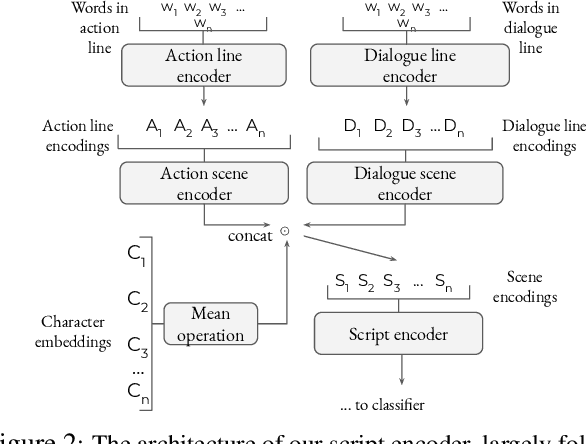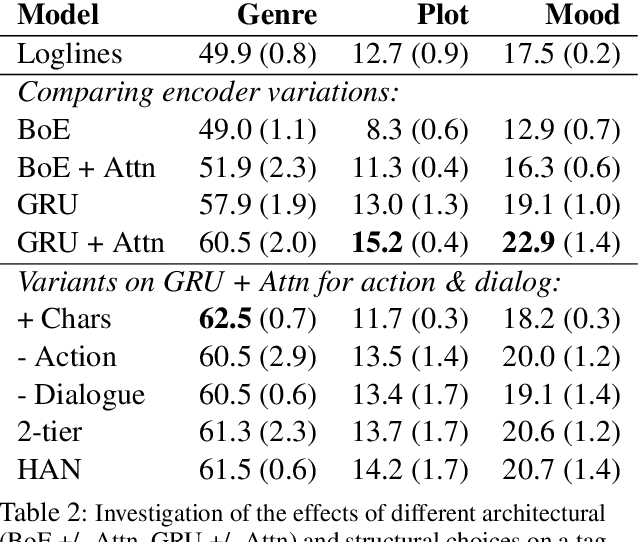Hierarchical Encoders for Modeling and Interpreting Screenplays
Paper and Code
Apr 30, 2020



While natural language understanding of long-form documents is still an open challenge, such documents often contain structural information that can inform the design of models for encoding them. Movie scripts are an example of such richly structured text - scripts are segmented into scenes, which are further decomposed into dialogue and descriptive components. In this work, we propose a neural architecture for encoding this structure, which performs robustly on a pair of multi-label tag classification datasets, without the need for handcrafted features. We add a layer of insight by augmenting an unsupervised "interpretability" module to the encoder, allowing for the extraction and visualization of narrative trajectories. Though this work specifically tackles screenplays, we discuss how the underlying approach can be generalized to a range of structured documents.
 Add to Chrome
Add to Chrome Add to Firefox
Add to Firefox Add to Edge
Add to Edge